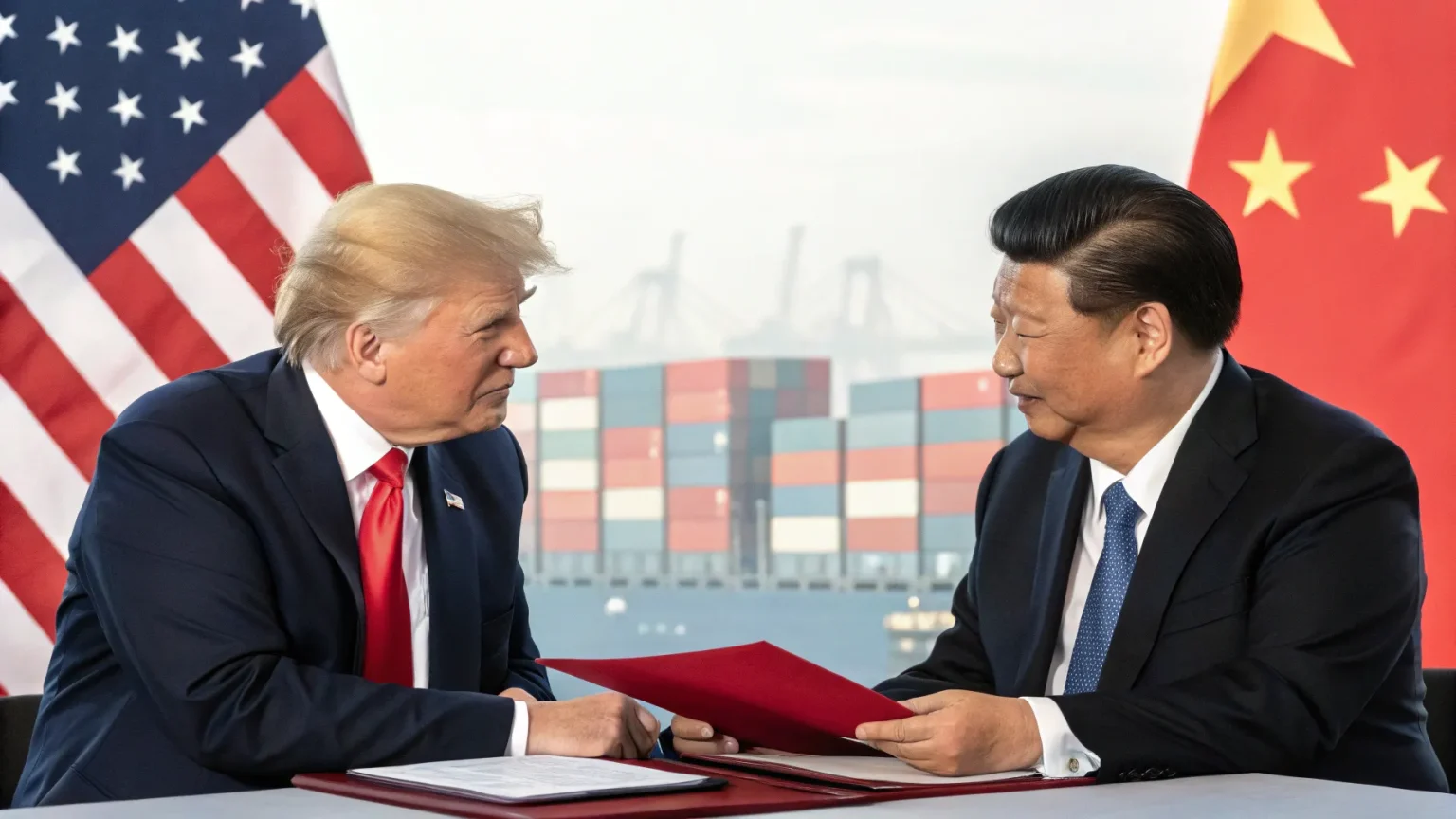President Trump’s approach to business relationships and economic policy shows striking similarities to strategies employed by the Chinese government, according to policy analysts and economic experts. This parallel emerges as both Trump and China have demonstrated preferences for bilateral negotiations, transactional relationships, and the use of tariffs as leverage.
Trump’s economic philosophy during his presidency frequently emphasized direct, one-on-one negotiations with countries rather than working through multilateral organizations. This approach bears a strong resemblance to China’s preference for bilateral agreements, where it can maximize its economic and political leverage.
Bilateral Over Multilateral Engagement
During his administration, Trump withdrew from or threatened to leave several multilateral agreements, including the Trans-Pacific Partnership and the Paris Climate Accord. He instead pursued direct negotiations with individual countries, similar to China’s Belt and Road Initiative, which focuses on country-by-country agreements rather than regional frameworks.
The president’s preference for bilateral deals allowed him to apply maximum pressure on individual trading partners,” noted an international trade expert. This mirrors how China approaches economic relationships, particularly with developing nations, where it can extract more favorable terms.
Both Trump and the Chinese leadership have shown a willingness to use economic threats as negotiating tactics. Trump’s frequent tariff threats against Mexico, Canada, and European allies echo China’s economic pressure campaigns against countries like Australia and South Korea when political disagreements arise.
Transactional Approach to International Relations
Another similarity lies in the transactional nature of engagement. Trump often framed international relationships in terms of direct economic benefit to the United States, questioning the value of alliances that didn’t provide immediate economic returns.
China similarly approaches international relationships through an economic lens, using market access and investment as tools to gain political influence. This stands in contrast to the traditional Western approach of building alliances based on shared values and long-term strategic interests.
Both view international relations as a series of deals rather than a system of rules and norms,” explained a foreign policy analyst. “This creates a more unpredictable international environment where relationships are constantly being renegotiated based on immediate interests.”
Strategic Use of Tariffs
Trump’s extensive use of tariffs as a policy tool represents perhaps the clearest parallel with Chinese economic strategy. During his term, he imposed significant tariffs on Chinese goods, but also on products from allies like Canada, Mexico, and the European Union.
China has long used tariffs and non-tariff barriers strategically to protect domestic industries and apply pressure in international disputes. Both Trump and China have shown a willingness to use economic pain as leverage, even when it might harm their own economies in the short term.
Economic data show that Trump’s tariffs on Chinese goods cost American consumers billions of dollars, yet he maintained them as negotiating leverage. Similarly, China has accepted economic costs to strengthen its position in trade disputes.
Implications for Global Trade
The similarities between Trump’s and China’s approaches have significant implications for the global trading system. Both challenge the rules-based international order that has governed trade since World War II.
- Increased unpredictability in global markets
- Weakening of multilateral institutions like the WTO
- Rise in protectionist measures worldwide
- Greater emphasis on power rather than rules in trade disputes
As Trump continues to influence Republican economic policy and China expands its global economic footprint, these parallel approaches may reshape international economic relations for years to come. The competition between these similar styles could lead to further fragmentation of the global trading system.
Critics argue this approach undermines long-term economic stability, while supporters contend it allows for more direct protection of national interests. What remains clear is that both Trump and China have moved away from the consensus-based approach that characterized international economic relations for decades.







